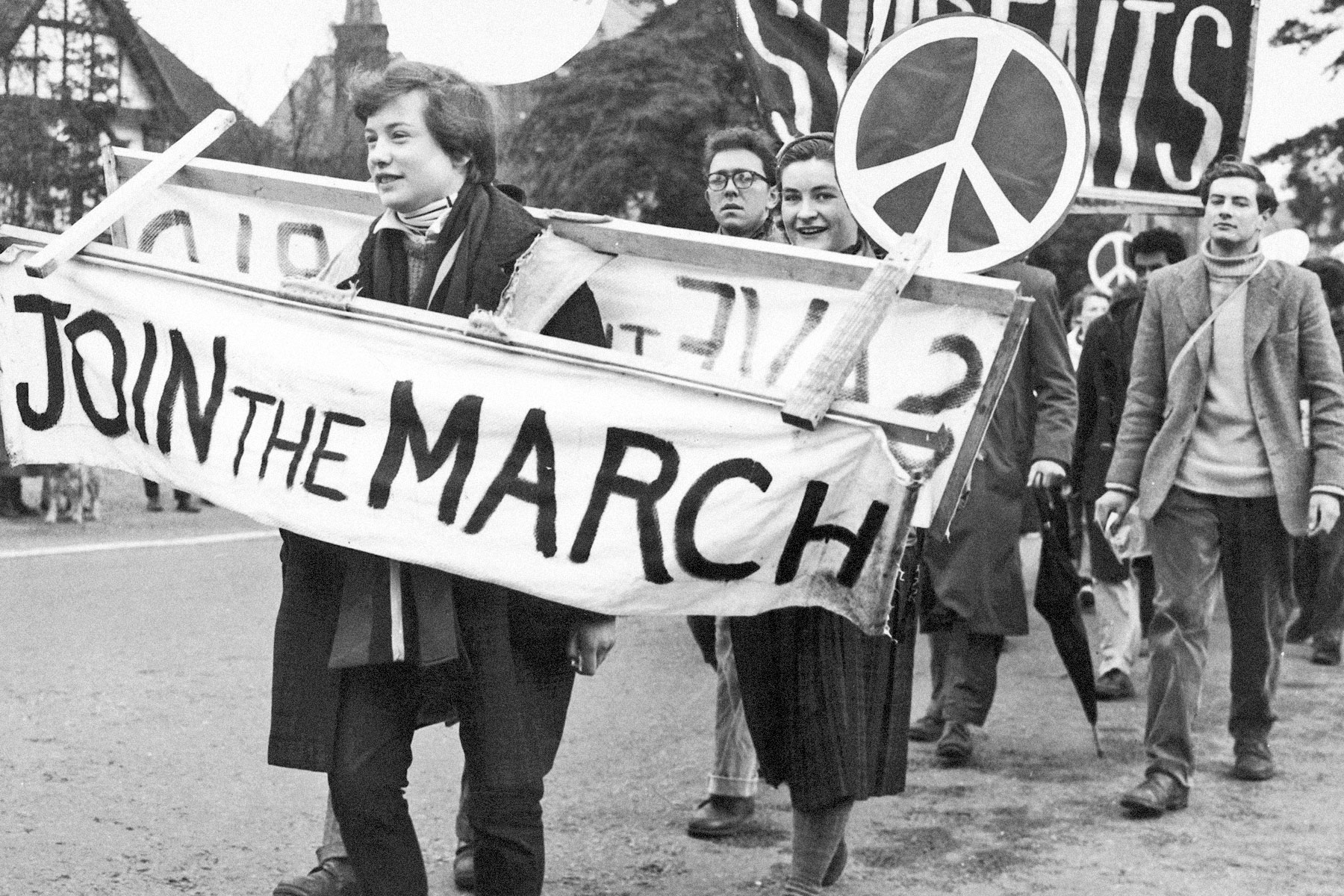
History Facts - In 1958, amid growing fears of Cold War nuclear proliferation, thousands of people gathered in London’s Trafalgar Square on Good Friday. The protesters were there to embark on a 50-mile march to the Atomic Weapons Research Establishment in Aldermaston, a small village where England carried out weapons research, production, and testing. The demonstration was the work of the Direct Action Committee Against Nuclear War and the newly formed Campaign for Nuclear Disarmament , and it featured the debut of an image that became one of the most recognized protest symbols in the world: the peace symbol.
The emblem was designed by English artist Gerald Holtom, a pacifist and conscientious objector during World War II. His design was stark, yet powerful: a circle, symbolizing Earth, with downward-pointing lines inside, forming the shape of the letter “N” and the letter “D,” for "Nuclear Disarmament.” The symbol also held deeper layers of symbolism for Holtom. In a letter to Hugh Brock, editor of the British pacifist magazine Peace News, Holtom revealed that he saw the symbol as somewhat of a self-portrait, capturing an individual in despair, standing with outstretched hands.
Study Finds - In a groundbreaking discovery that’s turning the world of linguistics
and archaeology upside down, researchers from Johns Hopkins University
have unearthed what may be the oldest known alphabetic writing in human
history — and it’s dramatically older than anyone previously thought. Hidden within a tomb in western Syria, four delicate clay cylinders
are challenging everything scholars believed about the origins of alphabetic communication.
These finger-length artifacts, carefully extracted from Tell Umm-el
Marra, date back to approximately 2400 BCE—a stunning 500 years earlier
than previous historical records suggested. The work was presented at
the American Society of Overseas Research’s Annual Meeting.
No comments:
Post a Comment